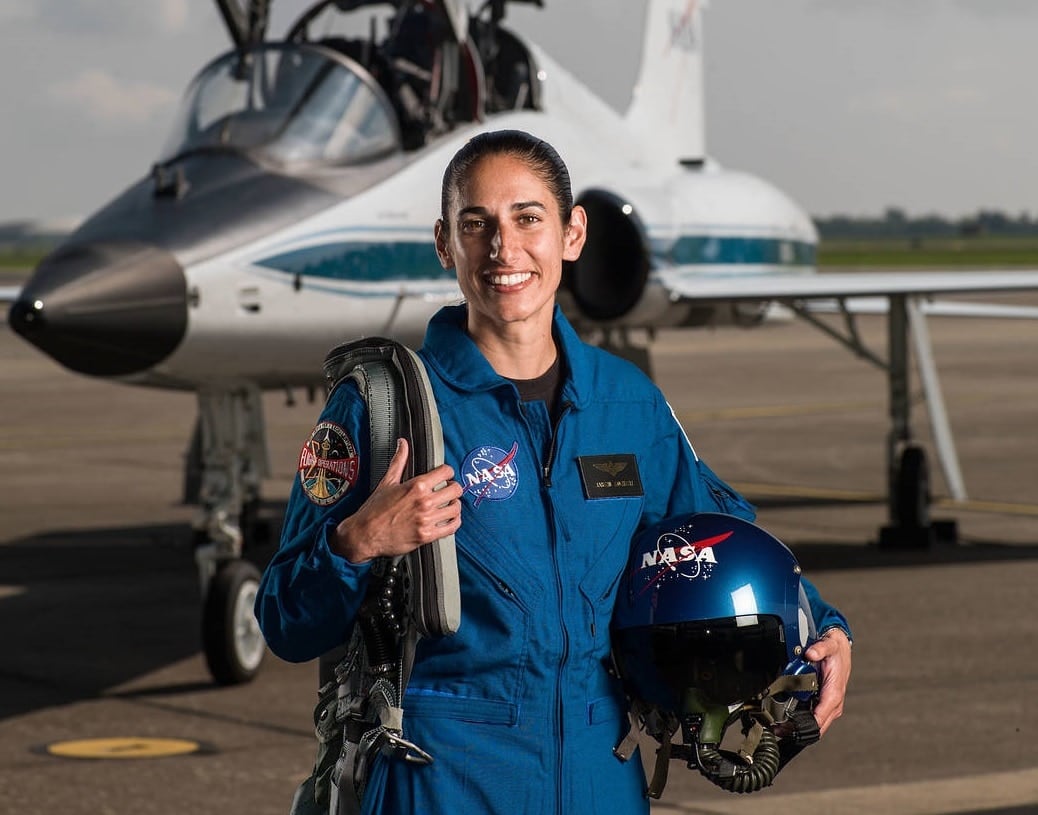In August, Marine Maj. Jasmin Moghbeli will begin two years of training to become an astronaut, after which she will await a flight assignment.
As a Marine Corps AH-1 Cobra pilot, Moghbeli deployed to Afghanistan in 2009 and later did a second deployment with the 31st Marine Expeditionary Unit.
Her parents left Iran for Germany, where she was born. She was only eight months old when her family arrived in the U.S. in February 1984, and eventually settled in Baldwin, New York.
Moghbeli recently spoke to Marine Corps Times about why she is following in the footsteps of fellow Marine aviator and astronaut John Glenn. The following are highlights from our exclusive interview, edited for clarity and space.
Q. How long have you wanted to be an astronaut?
A. Since I was a little kid. I can remember for sure since at least 6th grade — at that time I did a book report about Valentina Tereshkova, the first female in space. My mom helped me build a little space suit to dress up like her in class that day. At that point I had definitely decided to become an astronaut.
Q. How are you preparing for astronaut training in August?
A. By making sure that I up my game on physical fitness. Obviously, we've got to stay in shape in the Marine Corps, but I went out there and worked out with the astronauts and they're in incredible shape.
So I'm definitely trying to work out even more than normal and just make sure that I'm mentally and physically rested and ready to go for the next two years of training and beyond.
Q. What fascinates you about space and space travel?
A. There are so many things that appeal to me. One: I've always been drawn toward science, math, engineering and technology. Those types of fields have always drawn me in.
Then there's just the adventurous, exciting aspect of it. I remember back in history class reading about the explorers who traveled across the oceans to different continents and explored what were new worlds to them.
To me this is the modern-day version of that. We're talking about going farther in space than humans have ever gone before. From that aspect, there's just this childhood excitement about it.
Q. What made you decide to join the Marine Corps?
A. I was looking at: Hey, how can I become an astronaut? Military aviation is one of the paths. The military in general drew me in because of the physical and mental challenges, the service to nation and the teamwork aspect of it. I've played team sports since I was a little kid.
My junior year of college, I went to a career fair and spoke a Marine Corps officer there and he told me about this program the Marine Corps had called the Platoon Leadership Course: You can go through Officer Candidates School between your junior and senior years of college. From there, you can either chose to get commissioned or not. They also offered me a guaranteed air contract.
Once I went through the Marine Corps' Officer Candidates School, it was a done deal. There was no way that I was going to go to any other branch just because of the pride you build during your time there.
Q. How has your experience in the Marine Corps prepared you to train to become an astronaut?
A. There are so many ways the Marine Corps has helped prepare me for this. From basic things like going out and challenging myself. Every time I've had a challenge, I've either overcome it or failed and kept pushing on and kept trying.
The flight training aspect of it has been huge. Obviously that will have a direct correlation to many of the things, in terms of crew resource management and the flight training we're going to do with the T-38.
Going on deployments and being away from friends and family for long periods of time; being in confined spaces. Two of my deployments have been aboard U.S. Navy ships. You're in tight spaces with a couple people for long periods of time. You kind of have to work it out and get used to it.
Then basic things like public speaking. I used to be terrified of public speaking, and I've briefed over and over again as a Cobra pilot. It's just gotten me used to overcoming any of my fears.
Q. How has your experience flying combat missions shaped you as a Marine?
A. You can only simulate pressure so much. Being in an actual combat environment where your decision to shoot or not shoot or what to do can potentially affect whether or not another Marine lives or another human being survives, having to make decisions in those moments — I don't think you can simulate those in training.
So having that actual real-life experience and knowing when things get challenging that I am able to focus and I am able to think through it and I am able to rely on the Marines around me to help me through that, I think those things are all important.





